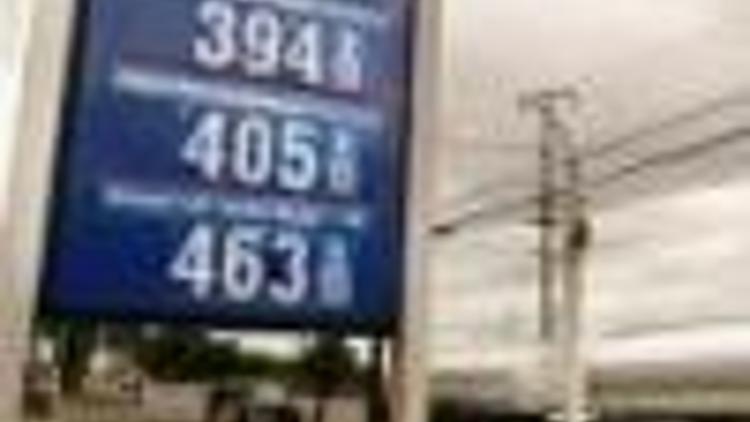Oil prices slip back after record above $135
Güncelleme Tarihi:

Oil prices hit a record above $135 a barrel before falling back in Asia Thursday, with supply worries, rising global demand and a slumping dollar keeping crude futures on an upward track.
With gas and oil prices setting new records nearly every day, many analysts are beginning to wonder what might stop prices from rising. There are technical signals in the futures market, including price differences between near-term and longer-term contracts, that crude may soon fall. �
But with demand for oil growing in the developing world, and little end in sight to supply problems in producing countries such as Nigeria, few analysts are willing to call an end to crude's rally.
Midday in Singapore, light, sweet crude for July delivery was trading at $134.58 a barrel in electronic trade on the New York Mercantile Exchange, up $1.41 from Wednesday's settlement.
The contract had earlier hit a trading record of $135.04 a barrel after rising $4.19 in the floor session Wednesday to settle at $133.17.
Investors seized on a U.S. inventory report Wednesday to boost prices, but traders interested in pushing prices higher are increasingly picking and choosing the news they wish to pay attention to, analysts say.
"Even if this report was bearish, with the momentum the way it is right now, it wouldn't matter," said Phil Flynn, an analyst at Alaron Trading Corp. in Chicago.
Crude prices first passed $130 in Wednesday's electronic trading on concerns about demand, supplies and a weaker dollar, and then they just kept going.
Analysts say crude has been boosted in recent days by especially strong demand for diesel in China, where power plants in some areas are running desperately short of coal and certain earthquake-hit regions are relying on diesel generators for power.
Overnight, the rise accelerated when the U.S. Energy Department's Energy Information Administration said U.S. crude inventories fell by more than 5 million barrels last week. Analysts had expected a modest increase.
The EIA said gasoline inventories also fell, which took the market by surprise as well. Inventories of distillates, which include heating oil and diesel fuel, rose less than analysts surveyed by Platts had expected.
In Asia, the dollar has continued to weaken, dropping to 103 yen in Tokyo's currency market. It was holding steady against the euro after weakening against Europe's currency the day before.
Investors see hard commodities such as oil as a hedge against inflation and a weak dollar and pour into the crude futures market when the greenback falls. A weak dollar also makes oil less expensive to buyers dealing in other currencies.
Many investors believe the dollar's protracted decline over the past year has been the most significant factor behind oil's rise from about $66 a barrel a year ago to today's highs.
In other Nymex trading, heating oil futures rose 3.31 cents to $3.9415 a gallon while gasoline prices added 2.42 cents to $3.4207 a gallon. Natural gas futures rose 8.9 cents to $11.729 per 1,000 cubic feet.
July Brent crude rose $1.59 to $134.29 a barrel on the ICE Futures exchange in London.
Photo: AP

